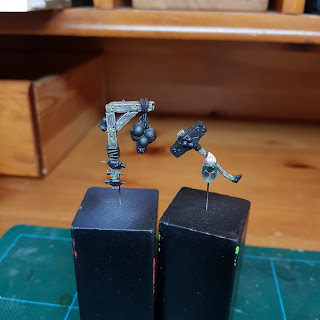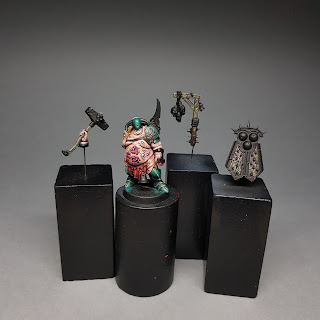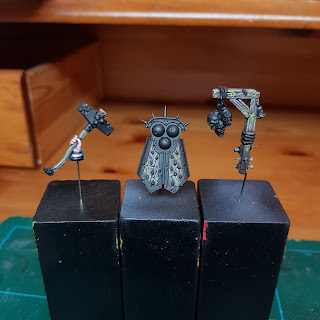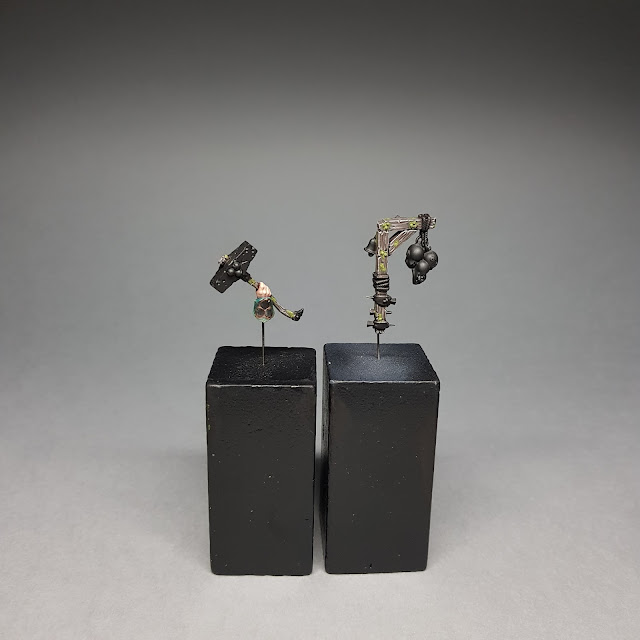Darren Latham - Lord of Blights Masterclass - Part 05: Painting the Wood
Part 5 of the series and we are on to painting all the wooden sections around the figure.
You see... I hadn't watched this video ahead of time because I finished the previous part so quickly. And I thought this was probably going to be a bit of dry-brushing, washing and edge highlighting, done.
Oh no... we're painting in all the bloody wood-grain by hand! I hadn't tried this in years... But we're here now and that's the way it's done...
Out came the reading glasses...
When I complete the next part I will follow right up with my progress.
Until then, take care.
Painting wood. Not a problem. Should be pretty simple right?
 | |
|
There I was. Desk all cleaned up, only the tools I needed to start on this section. Nice big pot of tea at the ready and...
"Hang on a bloody minute... There's no wood-grain on this miniature! It's all flat bare plastic with a couple of notches and holes in!?!"
You see... I hadn't watched this video ahead of time because I finished the previous part so quickly. And I thought this was probably going to be a bit of dry-brushing, washing and edge highlighting, done.
Oh no... we're painting in all the bloody wood-grain by hand! I hadn't tried this in years... But we're here now and that's the way it's done...
Out came the reading glasses...
This was the easiest part. Solid brown basecoat followed by a black wash to bring back the detail and tint the colour.
I'm not going to go blow-by-blow here. But these lines of wood-grain were built up with about 3-4 really thin layers of paint. Yep each one, each line has that many colours built up.
The final section of this video wash making some thin wash/glazes of greens to build up some moss/lichen in places around the wood and that was simple enough.
 |
| Add caption |
So there we have it, part 5 done. The following images show how the figure is looking so far.
I'm not gonna lie, by the end of concentrating hard and carefully painting all that wood-grain. My eyes felt like they were bloody pickled...
So at the time of writing this is me up to date. Part 6 has just been uploaded and I need to make a start on that.
When I complete the next part I will follow right up with my progress.
Until then, take care.











